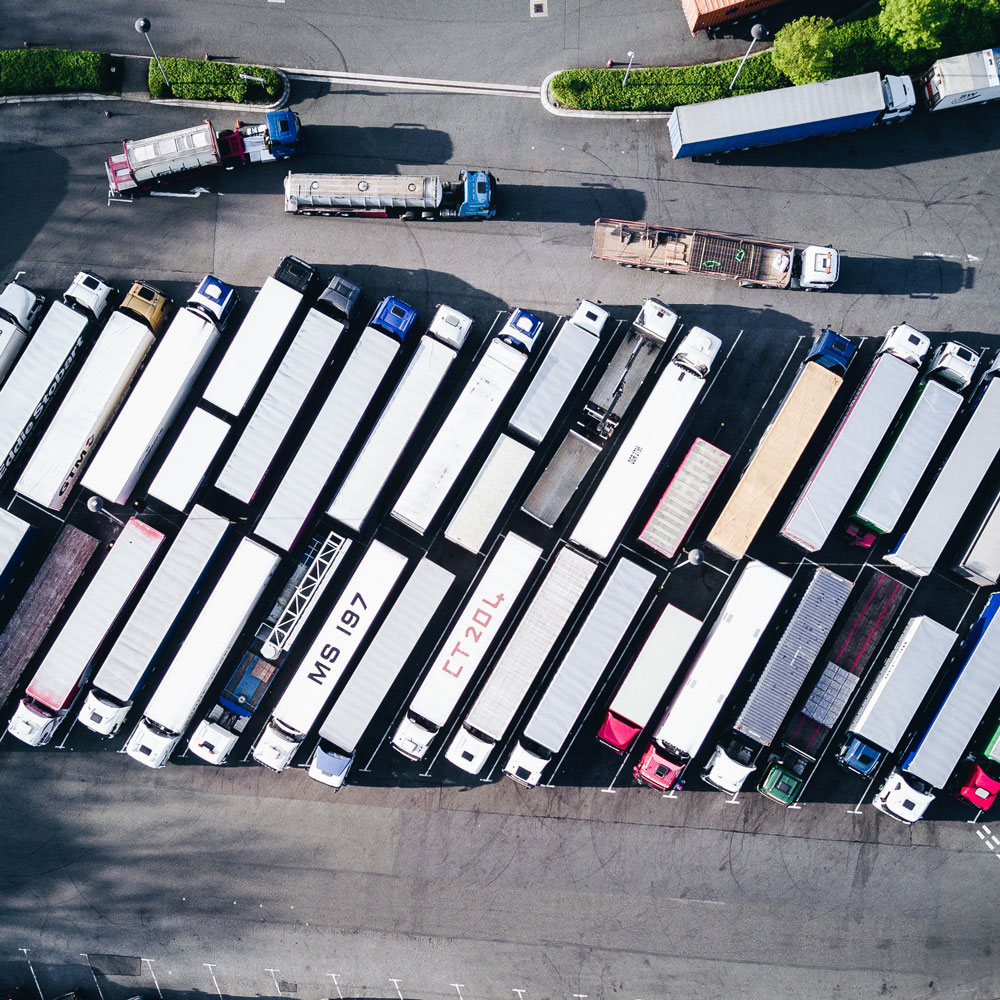Our highways are filled with a diverse mix of vehicles, from compact cars to massive 18-wheelers. While all motorists have a responsibility to practice safe driving habits, sharing the road with large trucks requires extra caution and awareness. Commercial trucks play a crucial role in our economy, transporting goods and materials across the country. However, their size and weight can pose significant risks to passenger vehicles in the event of a collision.

Staying alert and focused is paramount when sharing the road with trucks. Truck drivers face unique challenges like limited visibility, longer stopping distances, and reduced maneuverability. A momentary lapse in attention or a reckless maneuver around a large truck can lead to devastating consequences.
The sheer size and weight disparity between passenger cars and 18-wheelers means that occupants of smaller vehicles are far more likely to suffer serious injuries or fatalities in the event of a truck accident.
Sharing the road with semi trucks
With the documented dangers of being in a rear-end fatality with large trucks, drivers need to take extra precautions when sharing the road. The Federal Motor Carrier Safety Administration (FMCSA) suggests these seven tips for sharing the roads with trucks:
- Stay out of blind spots. Many accidents with trucks occur because the trucker did not see a vehicle in adjacent lanes. Large trucks and buses have blind spots around the front, back, and sides of the vehicle. If you can’t see the driver in the truck’s side mirror, assume that the driver cannot see you. Don’t drive in a blind spot—speed up or slow down to stay visible in the truck’s mirrors, and be careful when merging near a truck or bus.
- Pass trucks safely. Make sure you can see the driver in the mirror before passing. Use your turn signals to alert the driver that you are about to change lanes, and accelerate to pass quickly so you can safely maneuver around the truck or bus. Keep the truck or bus visible in your rear view mirror before you pull back in front of it, and give it extra space.
- Don’t cut in close. Cutting in front of a bus or truck is especially dangerous because of the longer stopping time needed for large vehicles. Leave more space between yourself and the commercial truck than you would with a passenger car.
- Stay back. Tailgating is always dangerous, but particularly so with a truck or bus where the driver may not be able to see you behind them and you may not be able to see what is happening ahead of the truck due to its large size.
- Anticipate wide turns. Trucks and buses require extra turning room; never try to squeeze by or get between the vehicle and the curb.
- Be patient. As mentioned above, it’s important to wait patiently for a truck to make turns, as they need extra turning room. Don’t crowd the truck’s lane.
- Don’t drive fatigued, or under the influence of alcohol or drugs.
Suppose you are in an accident with a semi-truck or a bus and are unsure about your rights. In that case, you should call a personal injury attorney experienced in handling tractor-trailer accidents.
By the numbers: accounting for semi-truck traffic
Truckers perform an essential function in our economy, accounting for approximately 72.5% of the freight tonnage in the U.S. Almost every business in the U.S. relies in some way on trucking to receive raw products or to transport goods to market. Nearly every sector of the economy depends on trucks to transport goods and raw materials.
An estimated 80.4% of U.S. communities rely exclusively on trucks for freight transportation. The trucking industry employs around 7.95 million people, with 3.6 million of them being truck drivers. The rise of online stores and delivery services will only increase the demand for truckers and the number of trucks on our roadways.
Commercial vehicle accidents
Despite most professional truck drivers operating their vehicles safely, highway accidents involving large trucks remain a significant concern. The National Highway Traffic Safety Administration (NHTSA) recently reported that 5,005 people died in crashes involving large trucks in one year. Of these fatalities, 71% were occupants of other vehicles, 18% were truck occupants, and 11% were pedestrians, bicyclists, or other non-occupants.
While large trucks account for only 4% of registered vehicles and 7% of total vehicle miles traveled in the United States, they are involved in 10% of all fatal crashes, according to the FMCSA. Rear-end collisions are particularly dangerous when large trucks are involved. The FMCSA reports that 22% of fatal crashes involving large trucks are rear-end collisions, compared to just 12% of fatal crashes involving only passenger vehicles.
These statistics underscore the ongoing importance of truck safety and the need for cooperation between truck drivers and passenger vehicle drivers to reduce the number of accidents on our roadways.
The role of a truck accident lawyer
The legal implications of motor vehicle accidents involving large commercial vehicles can be complex, as multiple parties may be held liable for the accident. Liable parties may include the truck driver, the trucking company, and even the manufacturer of the truck or its parts.
Truck accident attorneys help victims navigate the legal process and obtain the compensation they deserve. These attorneys focus on handling cases involving big trucks and understand the unique challenges and regulations that apply to the trucking industry.
One of the primary responsibilities of a truck accident attorney is to investigate the cause of the accident and determine who is liable. This may involve reviewing police reports, interviewing witnesses, and consulting with accident reconstruction experts. The attorney will also gather evidence to support the victim’s claim, such as medical records, bills, and lost wage information.
Once liability has been established, the truck accident attorney will work to negotiate a fair settlement with the responsible party’s insurance company. If a settlement cannot be reached, the attorney may file a lawsuit on behalf of the victim to seek compensation through the court system.
Truck accident compensation
The types of compensation available to truck accident victims may include:
- Medical expenses: Victims may be entitled to compensation for all medical expenses related to the accident, including hospital bills, surgery costs, and ongoing rehabilitation.
- Lost wages: If the victim is unable to work due to their injuries, they may be entitled to compensation for lost wages and future earning capacity.
- Pain and suffering: Victims may be entitled to compensation for the physical pain and emotional distress caused by the accident.
- Property damage: If the victim’s vehicle or other property was damaged in the accident, they may be entitled to compensation for repair or replacement costs.
There are strict deadlines for filing truck accident claims, and failure to meet these deadlines can result in the loss of legal rights and the ability to seek compensation.
Contact Allen & Allen to file a personal injury claim
If you or a loved one has been involved in an accident with a commercial truck, bus, or other large vehicle, seek legal guidance from experienced professionals who understand the complexities of these cases. The dedicated team of personal injury lawyers at Allen & Allen has extensive experience handling truck accident claims and is ready to help you navigate this challenging time.
Contact Allen & Allen today to schedule a free consultation with one of our knowledgeable truck accident lawyers. During this consultation, we will listen to your story, answer your questions, and provide honest advice on whether filing a personal injury claim, lawsuit, or wrongful death claim is the best course of action for your unique circumstances. We are committed to protecting your rights and fighting for the justice you deserve.
Take the first step towards recovery and peace of mind. Call our legal team at 866-388-1307 or schedule a consultation online anytime. Our experienced personal injury lawyers are ready to stand by your side and help you move forward after a devastating truck accident. Let us put our knowledge, skills, and resources to work for you and your family.



